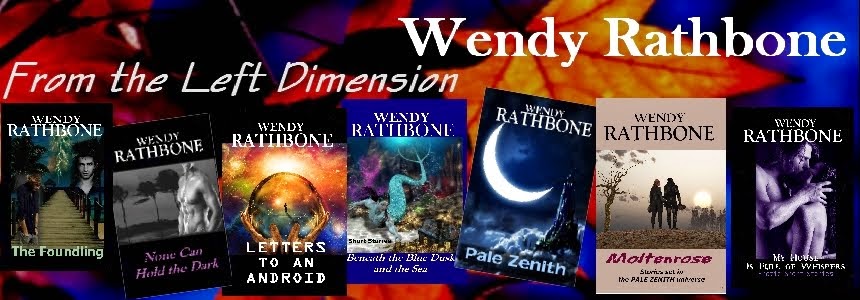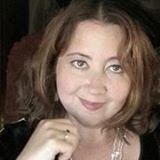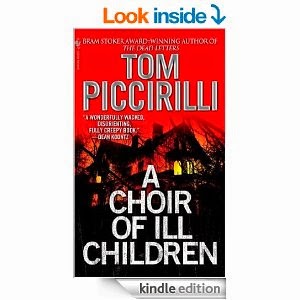Welcome to yet another author mini-interview for my blog. And welcome David C. Kopaska-Merkel.
David and I have known each other through mail and the Internet since the 1980s. He has also been kind to publish a lot of my poetry in his wonderful poetry magazine Dreams and Nightmares. That magazine's 100th issue is coming out soon, complete with color cover, and I am honored to have a poem within it. I'll announce here and on Facebook when it is out. In the past, David and I have also collaborated on poems together. That was a great experience.
Last year I read (and reviewed for Star*Line) his collection Luminous Worlds from Dark Regions
Press. Because David has written so many books, I heartily recommend this one as a good sampling, a great place to start if you have not had the privilege of reading him before.
And now, on to the interview!
David C. Kopaska-Merkel
Why do you write what you do?
I don't usually plan ahead. I write what comes
into my head. I have ideas that knock hard to be let out. I like science
fiction and fantasy, so that's what I write. I made up stories and poems for my
children when they were small, so I write those things too. One thing I set out
to write, deliberately, is the daily poem. These are usually haiku and they are
usually about something that is in my presence. That is how haiku are supposed
to be written, at least traditionally. I do try to write for themed issues and
such, but sometimes everything I come up with just doesn't fit.
How does your writing process work?
I sit down to write, and sometimes something
intelligible comes out. If I think I might be able to improve it, then I fiddle
with it, adding commas and taking them out, wholesale reorganization, that sort
of thing. Quite often, I decide the avenue I'm following is unfruitful. At that
point I either start over with a piece of what I've got in front of me or
abandon it altogether.
I have an online writing group. Each week we
propose words and then the idea is that each of us will write a poem using some
or all of the words. I find this is a good way to get started writing. Also, if
you really try to use all the words, the challenge encourages creative
thinking.
 What are you working on now?
What are you working on now?
I am working on a second book of children's
poems. The Edible Zoo was written for
my children, nieces, and nephews when the oldest ones were only a couple of
years old. They really liked the funny poems about people and animals trying to
eat each other, and over the years when more nieces and nephews were born, and
another daughter, I added poems. Eventually it was published and a couple of
them bought copies for their own children. So recently I wrote a silly
children's poem about an animal (it wasn't being eaten). I read this poem to my
other writing group (this one is local). Several members are pretty serious and
accomplished writers. Anyway, everybody liked the poem, so that's my new
project: write some more.
How does your work differ from others in the
genre?
I don't know how to answer this question. I am
one of several science-fiction poets who includes a fair amount of science in
some of their poems, and I am the only one of these who is a geologist (as far
as I know.) In many of my poems a viewpoint character struggles against a
hostile or uncaring universe. Sometimes I feel sorry for this person. But does
this set me apart from most other speculative poets? I don't think so.
Bio: David C. Kopaska-Merkel
When not
writing poetry, David Kopaska-Merkel studies the varied and
strange part of the Earth called Alabama. Kopaska-Merkel
has written myriads of poems, stories, and essays since the 70s. He won the
Rhysling award (Science Fiction Poetry Association) for best long poem in 2006
for a collaboration with Kendall Evans. He has written 23 books, of which the
latest is Luminous Worlds, a collection of dark poetry from Dark Regions
(http://www.amazon.com/Luminous-Worlds-David-C-Kopaska-Merkel/dp/193712892X/).
Kopaska-Merkel has edited Dreams & Nightmares magazine since 1986. DN
website http://dreamsandnightmaresmagazine.blogspot.com/. @DavidKM on
twitter.
*
Thank you so much, David, for taking the time to answer my questions. Look for future interviews with more authors on this blog.
Wendy Rathbone
P.S. Below is David's complete bibliography! Check it out.
Poetry and fiction books by David C. Kopaska Merkel
Contact information: 1300
Kicker Rd, Tuscaloosa, AL 35404 205-553-2284 jopnquog@gmail.com
 1.
underfoot, the
runaway spoon press, 1991, ISBN 0-926935-60-7, 2nd printing ($6)
1.
underfoot, the
runaway spoon press, 1991, ISBN 0-926935-60-7, 2nd printing ($6)
2.
a round white
hole, dbqp press, 1993, a few left, available from author ($5)
3.
The Conspiracy
Unmasked, Dark Regions Press, 1994, out-of-print
4.
hunger,
Preternatural press, 1996, out-of-print
5.
Results of a
preliminary investigation of the electrochemical properties of some organic
matrices , Eraserhead Press, 1999, out-of-print
6.
Y2K survival kit,
smoldering banyan press 1999, out-of-print
7.
The Ruined City,
gnarled totem press, 2003, out-of-print
8.
Shoggoths, Sam's
Dot publishing, 2003, out-of-print
9.
The Deadbolt
Casebook, Sam's Dot publishing (fiction), 2004, out of print
10.
the egg show,
speakeasy press, 2005, ISBN 0-9762962-0-9 ($40, entirely handmade including the
paper) http://www.speakeasypress.com/folded/foldedeggshow.html
11.
I don't know what
you're having, Sam's Dot publishing,
2005, out-of-print
12.
Separate
Destinations (with Kendall Evans), D66 Press, 2005, ISBN 1-892958-02-3, a few
left, available from author ($7)
13.
Hasp Deadbolt,
Private Eye, Sam's Dot publishing (fiction), 2007, out-of-print
14.
Drowning
Atlantis, spechouseofpoetry.com (flash fiction), 2007, out-of-print
15.
The memory of
persistence, Naked snake press, 2007, out of print
 16.
Nursery Rhyme
Noir, Sam's Dot publishing, 978-09821068-3-9
(fiction; incorporates 9 and 13), 2008, 2nd printing, available
from author ($14)
16.
Nursery Rhyme
Noir, Sam's Dot publishing, 978-09821068-3-9
(fiction; incorporates 9 and 13), 2008, 2nd printing, available
from author ($14)
17. Night Ship
to Never (with Kendall Evans), diminuendo press, 978-0-9821352-3-5, 2009,
out-of-print
18. The simian
transcript, Banana Oil books, flash
fiction, 2010, a few left, available from author ($8)
19. Brushfires,
Sam's Dot publishing, poetry, 2010 ($9)
20. The Tin Men
(with Kendall Evans), Sam's Dot, poetry, 2011 ($9)
21. The Edible
Zoo, Sam's Dot, children's poetry, 2012, available from author ($10)
22. Luminous
Worlds, Dark Regions Press, 2013, ISBN 978-1-937128-92-0
Available from the author
(except 10 & 22); prices include shipping. Make checks out to author.







.jpg)


.jpg)









.jpg)












